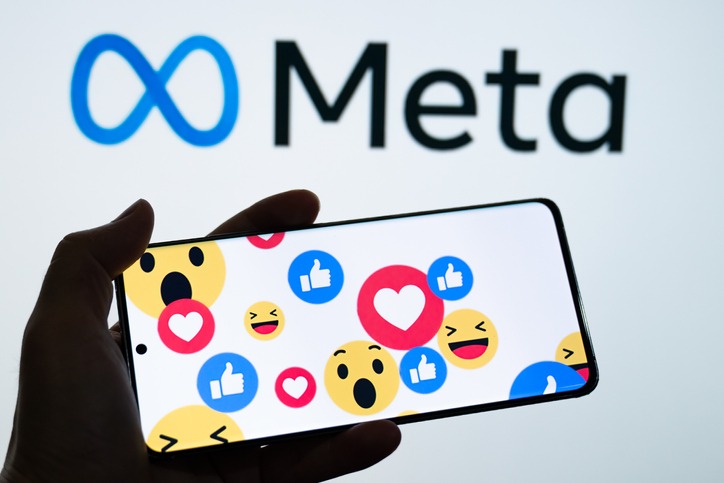The Scoop: Meta shuts down disinformation tool ahead of U.S. election
Plus: The Onion releases a paper edition (yes, really); FTC cracks down on AI-driven fake reviews.

With less than three months until the U.S. presidential election, Meta has gone through with its promise to shut down CrowdTangle, a tool for tracking misinformation on the company’s social media.
The tool was popular among journalists, researchers, academics and watchdog groups for allowing them to monitor social media posts and study the spread of deepfakes, misleading posts and outright lies across Facebook and Instagram.
Meta announced the plan to move away from CrowdTangle in November, saying it doesn’t provide a complete picture of what is happening on its platforms. Meta claims its replacement tool, Meta Content Library, is more comprehensive.
While it offers much of the same data, critics claim MCL isn’t as transparent and offers fewer features and less usability, according to TechCrunch. Meta is also limiting access to “qualified academic or nonprofit institutions who are pursuing scientific or public interest research,” meaning most journalists will no longer have access to the data.
Why it matters: The optics of denying journalists access to potentially important information ahead of what’s expected to be a socially media-charged election season aren’t great.
The Democratic National Convention and a series of presidential and vice-presidential debates are right around the corner, and the election is just 80 days away. That’s not to mention the number of conflicts, protests and other high-profile events taking place around the world right now.
It’s not just about macro events, though. Limiting these tools will make it harder for companies and brands to effectively combat the mis- and disinformation attacks they’re experiencing as well.
A group of researchers and watchdog groups requested that Meta keep CrowdTangle open through January, claiming not doing so “jeopardizes essential pre- and post-election oversight mechanisms and undermines Meta’s transparency efforts during this critical period, and at a time when social trust and digital democracy are alarmingly fragile.” The request was unsuccessful.
As a result, there are fewer people who have access to tools to track details related to the spread of fake and often damaging information. That not only hurts efforts to combat the spread of information, but it may also lead to it spreading faster because there are few people to watch for it.
Editor’s Top Reads:
- The Onion now offers a monthly print edition. No, that’s not satire. This week, the outlet began delivering a paper edition for the first time since its origins as a campus weekly in the late 1980s. First announced in May, The Onion’s return to print symbolizes a unique way for a legacy property to find and generate new revenue streams and attract new audiences. While most properties are digital-first these days, Jordan LaFlure, The Onion’s executive editor, told the New York Times he believes this approach will attract and retain digital subscribers, particularly among the younger generation, which has shown “some affinity for analog substitutes of digital products.” The Onion team plans to hand out the print editions at the upcoming Democratic National Convention in Chicago. This is a great example of a company, which has faced financial struggles in recent years, looking for unique opportunities to reach new audiences and establish new customers. It’s also a rare spot of good news in the media industry – even if it is all for laughs.
- The Federal Trade Commission voted this week to ban companies from purposely using fake reviews, including those generated with AI technology, to help promote or exaggerate the clout of their business, according to CNBC. The rule includes paying bots to inflate social media followings. Ultimately, the ruling is a good thing for PR and marcomms teams. Companies spend considerable time, money and human resources to engage potential customers and build brand loyalty and trust. Eliminating these types of deceptive practices will hopefully make it easier for consumers to trust what they’re seeing online is genuine and know that they’re going to receive a worthwhile product if they go ahead with the purchase.
- TikTok continued its fight for Constitutional protections this week by arguing that its U.S. arm is no different than foreign-owned American news outlets such as Politico, Business Insider and Fortune. Attorneys for the China-based company have made the First Amendment a key part of their legal challenge to the federal law requiring its owner, ByteDance, to sell TikTok to an approved buyer or face a ban in the United States, according to the Associated Press. The continued back-and-forth once again highlights the questions surrounding the future of the popular video-sharing platform in the United States. As of right now, nothing has changed about TikTok’s operating status. But that could change quickly, and you should be planning now in case TikTok does disappear. Oral arguments begin Sept. 16.
Casey Weldon is a reporter for PR Daily. Follow him on LinkedIn.







